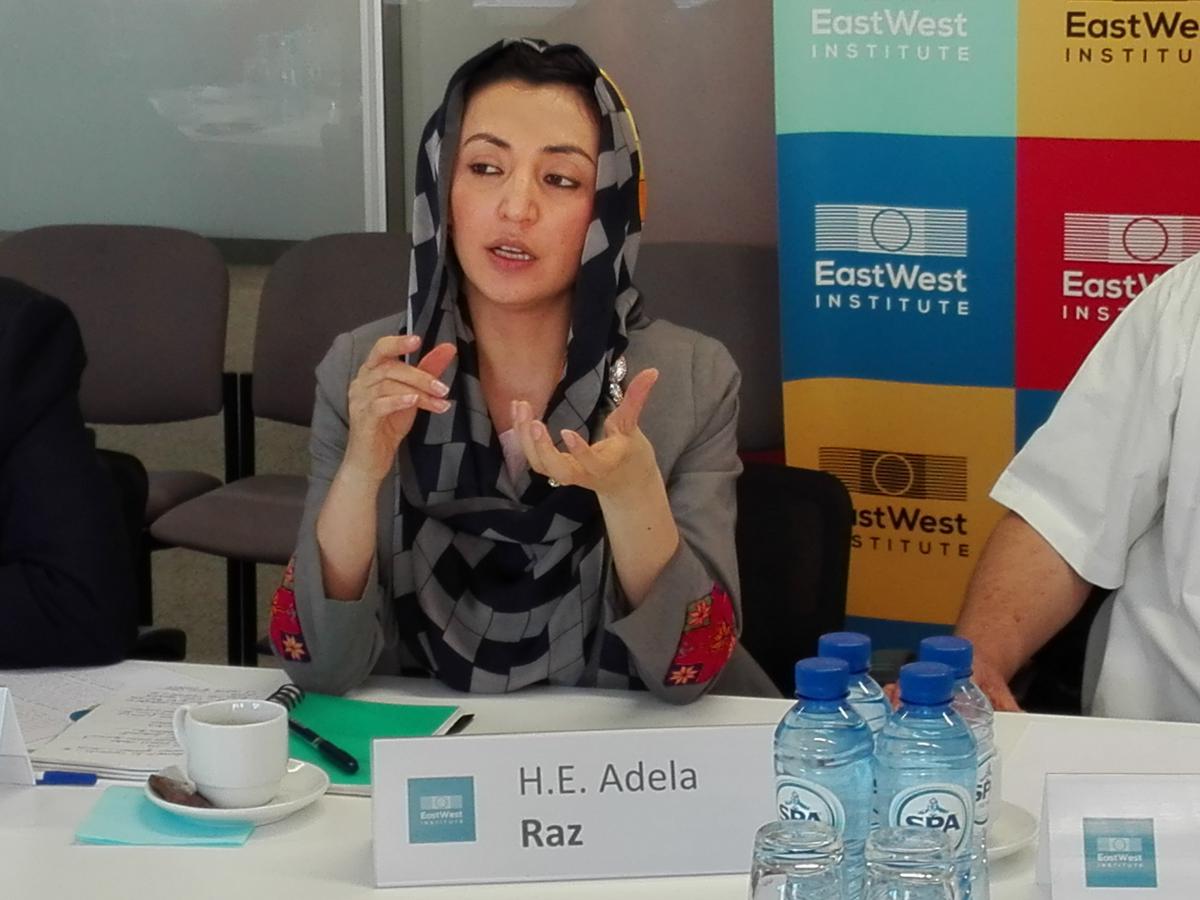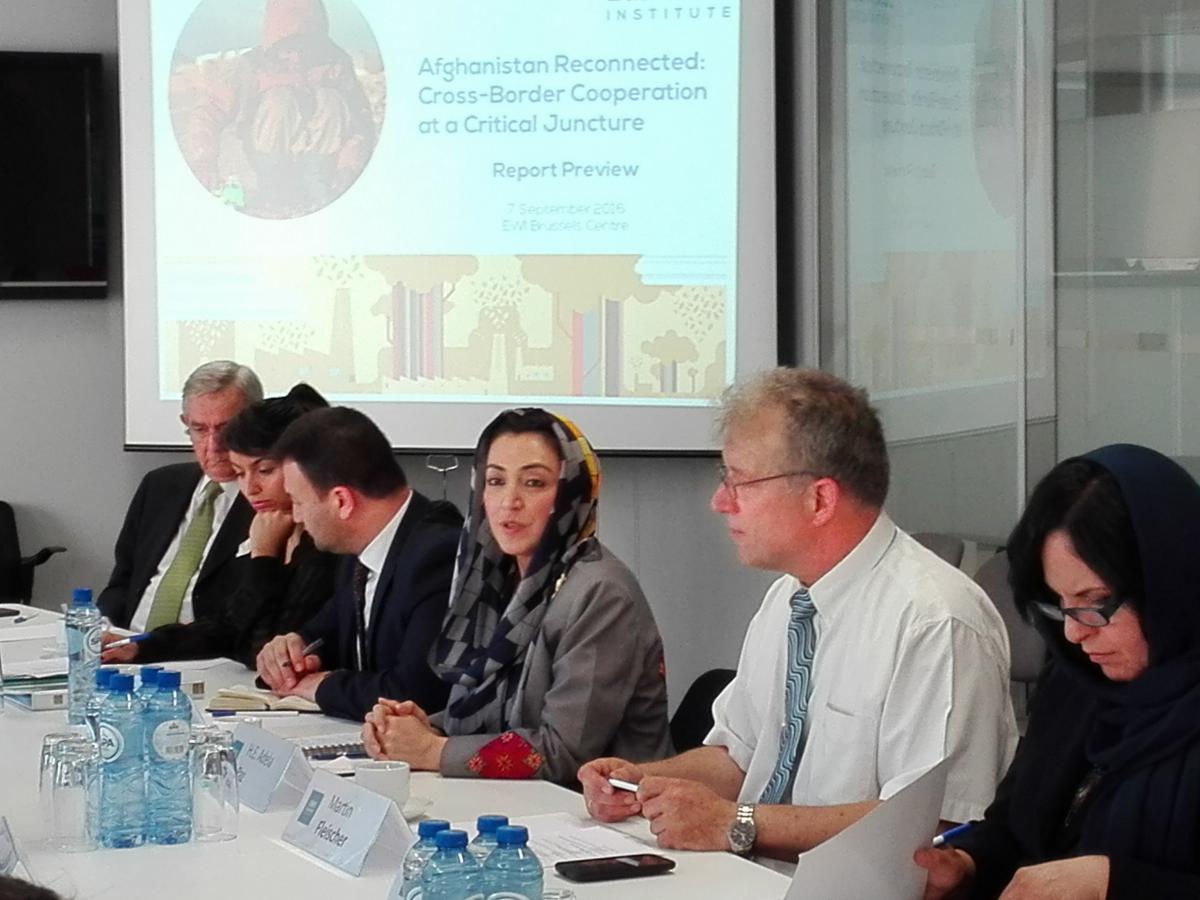
EWI Hosts Afghan Deputy FM Adela Raz, Previews Latest Afghanistan Reconnected Report
The EastWest Institute's Brussels Center hosted a preview of its forthcoming report, "Afghanistan Reconnected: Cross-Border Cooperation at a Critical Juncture" on 7 September, 2016. The preview was held in the presence of H.E. Mrs. Adela Raz, Deputy Foreign Minister for Economic Affairs of Afghanistan. Also in attendance were Ms. Khojesta Fana Ibrahimkhil, Director General of Human Rights and Women's Affairs, and Mr. Shoaib Habibi, Deputy Director General of Economic Cooperation, both of the Ministry of Foreign Affairs of Afghanistan, as well as representatives of the Embassies of Afghanistan and other interested countries, EU institutions, the European External Action Service, and Brussels-based think tanks and NGOs.
H.E. Mrs. Raz delivered a keynote address detailing the progress Afghanistan has made and the challenges still facing it, with a particular regard to matters of governance and regional economic cooperation. The country has achieved much in terms of the representation of women and youth in the government, and demonstrates a willingness to integrate into the region and play a substantial role in regional affairs. For the past two years under the National Unity Government, a major priority of Afghanistan has been economic development, and for the first time in recent history, Afghanistan's economic strategy is proactive rather than reactive, looking forward and planning ahead instead of simply responding to present circumstances.
International investments in the country, says H.E. Mrs. Raz, have not been wasted. Significant potential is there, however, challenges remain. Afghanistan has the highest levels of illiteracy and youth unemployment in the region. Corruption and lack or transparency are endemic, and though necessary work is being done to combat this, the problem remains substantial and will not be solved overnight. Security issues and the rise of extremism and terrorism, as well as rampant trafficking of drugs and narcotics, plague not only the country but the region as a whole.
Now is the time for the region to collectively think about challenges. Large regional projects and initiatives have shown that although geopolitics are a challenge in the region, trade and transit remain matters in which all actors have a mutual interest. In that front, there is strong will from Afghanistan and its neighbors to move forward. As the Brussels Conference on Afghanistan approaches, during which EU donors will likely reaffirm their levels of commitment to Afghanistan, the country and the region are at a critical juncture. What is crucial at this key moment is for the international community to indicate to Afghanistan that it does not stand alone.
The EastWest Institute's "Afghanistan Reconnected: Cross-Border Cooperation at a Critical Juncture" report, which is scheduled for publication and launch in the coming weeks, outlines the current geopolitical situation and advances made in regional economic cooperation in the fields of trade and transit and energy. The report highlights problems in these areas, and in particular offers actionable recommendations developed over 3 years of consultation with participants in the Afghanistan Reconnected Process, including members of governments, the private sector, business leaders, and experts throughout the region. The following preview outlines the key points and recommendations.
Below are two select pictures from the event.


The previewed document can be accessed below and downloaded here.

